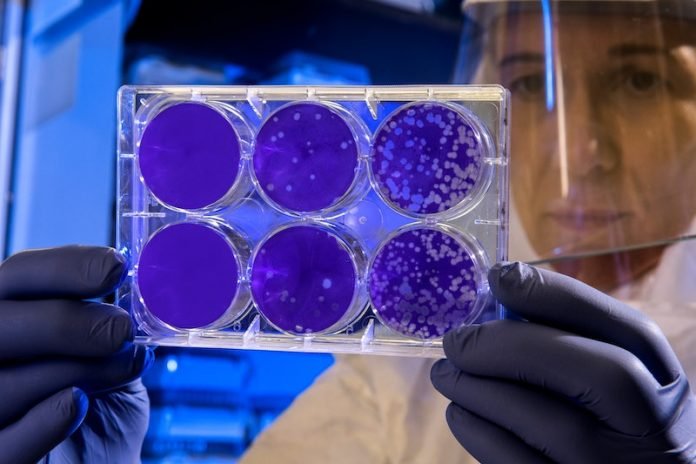
The release of massive amounts of proteins called cytokines can lead to some of the most severe symptoms of COVID-19.
When large numbers of immune cells release cytokines, this increases inflammation and creates a feedback loop in which more immune cells are activated and this is sometimes called a cytokine storm.
In a new study, researchers found that high levels of some cytokines may also prevent people who are infected from developing long-term immunity.
These patients were observed to make very few of the type of B cells needed to develop a durable immune response.
The research was conducted by a team at Massachusetts General Hospital, MIT, and Harvard.
Scientists have seen a lot of studies suggesting that immunity to COVID-19 is not durable because the antibodies decline over time.
This study provides a mechanism that explains this lower-quality immune response.
The team focused on germinal centers—the areas within the lymph nodes and spleens where B cells, the immune cells that produce antibodies, differentiate.
Differentiation and changes in antibody genes are required to build immunity to an infectious agent.
When the researchers looked at the lymph nodes and spleens of patients who died from COVID-19, including some who died very soon after getting the disease, we saw that these germinal center structures had not formed.
Because the disease was so new, animal models for studying COVID-19 infection were not yet available at the time they began their study.
The researchers instead gained insights from previous studies involving mouse models of other infections that induce cytokine storm syndrome—a malaria model and one of bacterial infection in which germinal centers were lost.
In people with severe COVID-19, one of the most abundant cytokines released is called TNF. In the infected mice, TNF appeared to block the formation of germinal centers.
In previous cytokine storm models, when the mice were given antibodies to block TNF or had their TNF gene deleted, the germinal centers were able to form.
When the researchers studied the lymph nodes of patients who had died of the disease, they found high levels of TNF in these organs.
This led them to conclude that TNF may be preventing the germinal centers from forming in people with COVID-19 as well.
The researchers also studied blood and lymphoid tissue from people with active infections who were in different stages of COVID-19.
They found that although germinal centers were not formed, B cells were still activated and appeared in the blood, which would allow the patients to produce some neutralizing antibodies.
But without the germinal centers, there is no long-term immunity.
Studies of other coronaviruses that cause colds have suggested that someone can get infected with the same coronavirus three or four times in the same year.
The authors say despite their findings, they still believe a successful COVID-19 vaccine can be developed as it should not cause high levels of cytokines to be released.
One author of the study is Shiv Pillai, a professor at Harvard Medical School.
The study is published in Cell.
Copyright © 2020 Knowridge Science Report. All rights reserved.



